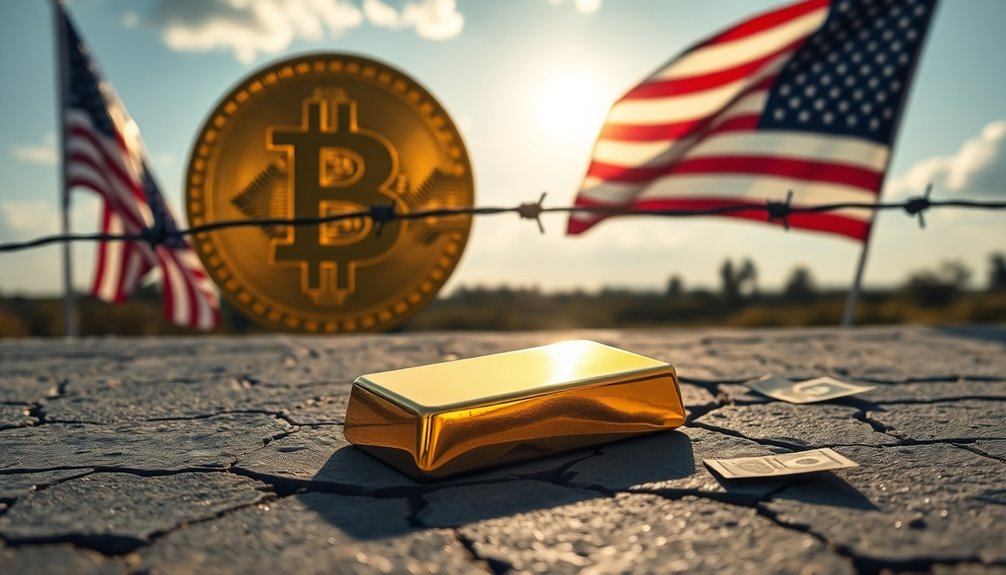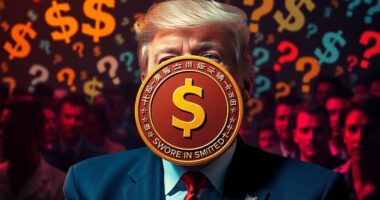As you navigate the complexities of today's economic landscape, it's clear that investors are prioritizing stability. With Trump's trade war intensifying, gold has emerged as a safer bet compared to Bitcoin. While gold's price has climbed about 9% this year, Bitcoin's fluctuations leave many cautious. What does this trend say about investor sentiment, and how might it shape future market strategies? The implications could be significant.

As the U.S.-China trade war escalates, many investors are turning to gold, which has proven to be a more reliable safe-haven asset compared to Bitcoin. With gold prices surging about 9% year-to-date and hitting an all-time high of $2,882 per ounce, it's clear why you might be looking at gold as a solid investment. Its market capitalization now exceeds $19 trillion, dwarfing Bitcoin's $1.91 trillion, making gold a much more stable choice amid the ongoing geopolitical tensions.
Investors are flocking to gold partly because it's viewed as a safer store of value during these uncertain times. The trade war is causing economic instability, which historically boosts gold's appeal. Analysts expect gold prices to continue their upward trajectory, even with fluctuations in the market caused by a strong U.S. dollar, as the U.S. government deficit spending supports gold prices. Additionally, gold's role as a hedge against currency devaluation is becoming increasingly relevant as inflation concerns rise.
In contrast, Bitcoin has only seen a modest increase of about 3% year-to-date, highlighting its struggles against gold's robust performance. Bitcoin's volatility is one of its major drawbacks. You may have noticed that it's dropped over 10% from its all-time high, and while it reached new heights above $100,000, it has since declined significantly.
This inconsistency makes Bitcoin feel more like a high-risk tech stock rather than a traditional safe-haven asset. Investors are cautious, especially with the looming regulatory uncertainties surrounding cryptocurrency, which only add to the risk perception.
The ongoing trade tensions and potential tariffs are nudging more investors toward gold as they seek security. The prospect of inflation due to tariffs could further enhance gold's appeal. Central banks might also increase their gold holdings to bolster their currencies, further entrenching gold's position in the market.
Looking ahead, gold is expected to maintain its dominance as a safe-haven asset due to its historical stability. While Bitcoin may eventually carve out a niche as a store of value, its current volatility makes it a less attractive option for many.
Although the emergence of Bitcoin ETFs could help stabilize the market, you may still find that gold offers a more reliable hedge against economic uncertainty. In a world where market competition is fierce, gold's significant market cap positions it favorably, especially during turbulent times like these.









